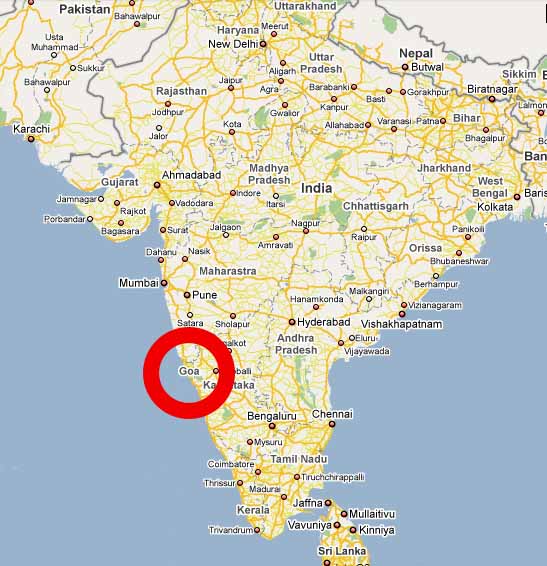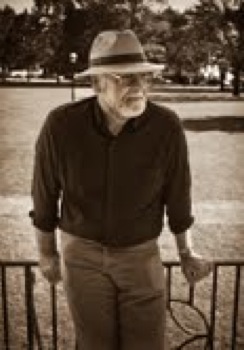The novel offers very good sense of place in India, namely Goa and some of Bombay, too, evidently before it became again Mumbai. The two protagonists are an Anglo-Indian lawyer and his de facto wife. an American working for the ‘Times of India.’ I found neither of interest on any level but not ciphers.

The novel is an unremitting tale of corruption. All India and all Indians are corrupt, and the foreigners who come to India are either fools or even bigger villains than the Indians. All rather one-note, repeated on nearly every second of the 400 pages.
Having said that, the characterisations are vivid and the plot is ingenious, if disgusting. Against impossible odds our heroes prevail by turning the villains against each other.
 Goa is circled in red.
Goa is circled in red.
That the molasses here is the vinegar.There is 100 pages too much description of what every character wore each time he or she is seen, what is eaten for each meal by our heroes. There are rich descriptions of street scenes, one after another, till they all blend. No doubt life is like that but reading about it should not be. A reader will suppose at the start that somehow it all contributes to the plot but quickly tires of following it all, and then one, well, this one, realised it is window dressing, like sprigs of curly parsley on the plate. Conclusion? Best to skim and turn the pages quickly.
Second in a series but I see no reason to persevere. Too many other good books to read.
Inside this fat book of 400 pages an editor like Elmore Leonard or Stephem King could cut out a good 200 page book that would read itself.
Machiavelli is mentioned. ‘As the philosopher Chanakya, adviser to Mauryan Kings, had declared two thousand years before Machiavelli, the exercise of morality and the exercise of statecraft were separate arts.’ This is a reminder of Richard Christie’s account of the development of MACH IV personality scale which has preoccupied me for some time.
 Paul Mann
Paul Mann
Skip to content
